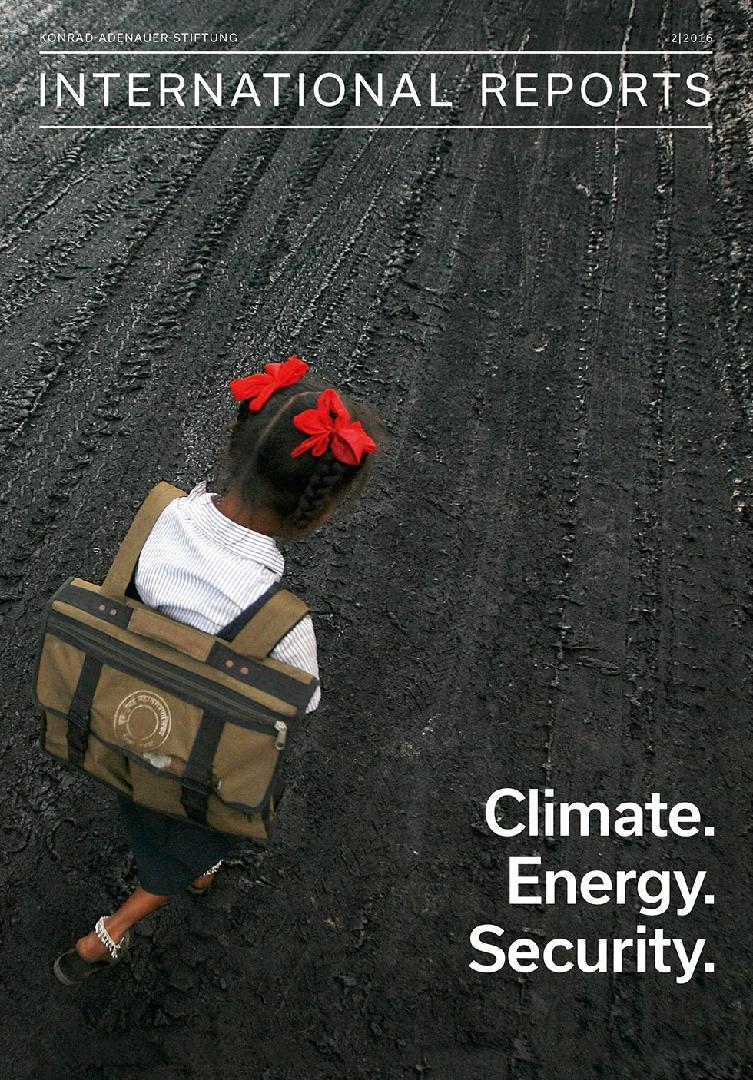The fight against climate change is not merely a question of ecological necessity but a question of economic reason. It is a question of generational equity, a question of compassion and a question of humanity and its future. These are the aspects Angela Merkel reminded her audience of when she addressed the 21st UN Climate Change Conference (COP21) at the end of 2015. Accordingly, the latest issue of International Reports deals with the topic "Climate. Energy. Security.".
View table of contentsAbout this series
International Reports (IR) is the Konrad-Adenauer-Stiftung's periodical on international politics. It offers political analyses by our experts in Berlin and from more than 100 offices across all regions of the world. Contributions by named authors do not necessarily reflect the opinions of the editorial team.
Order details
Our periodical on international politics is published four times a year. We provide you with background information on what is happening in the world – free of charge. Use our registration form and with just a few clicks you can read the digital version of our political journal or order the print version in German or English.
Editor
Dr. Gerhard Wahlers
ISBN
0177-7521
Benjamin Gaul
 benjamin.gaul@kas.de
+49 30 26996 3584
benjamin.gaul@kas.de
+49 30 26996 3584

Head of the Department International Reports and Communication
Rana Taskoparan
 rana.taskoparan@kas.de
+49 30 26 996 3623
rana.taskoparan@kas.de
+49 30 26 996 3623

Policy Advisor for Communication and Marketing





